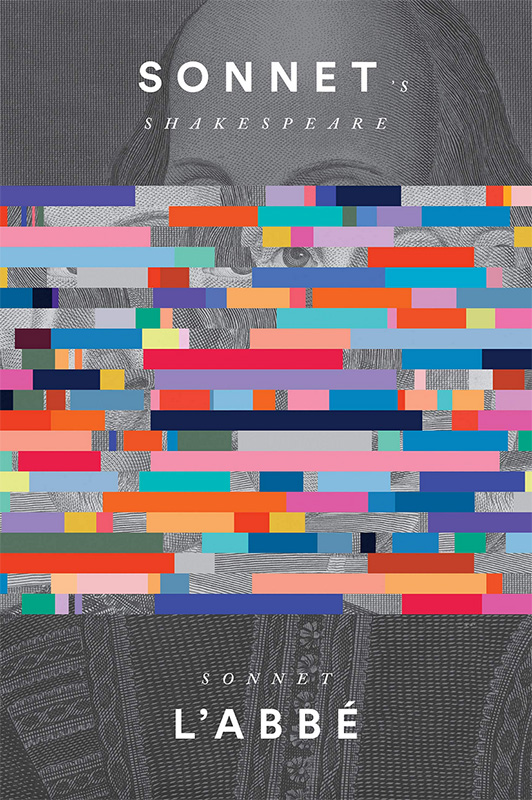
Sonnet’s Shakespeare
Sonnet L’Abbé
Publisher: McClelland and Stewart
Book Description
How can poetry grapple with how some cultures assume the place of others? How can English-speaking writers use the English language to challenge the legacy of colonial literary values? In Sonnet’s Shakespeare, one young, half-dougla (mixed South Asian and Black) poet tries to use “the master’s tools” on the Bard’s “house,” attempting to dismantle his monumental place in her pysche and in the poetic canon.
In a defiant act of literary patricide and a feat of painstaking poetic labour, Sonnet L’Abbé works with the pages of Shakespeare’s sonnets as a space she will inhabit, as a place of power she will occupy. Letter by letter, she sits her own language down into the white spaces of Shakespeare’s poems, until she overwhelms the original text and effectively erases Shakespeare’s voice by subsuming his words into hers. In each of the 154 dense new poems of Sonnet’s Shakespeare sits one “aggrocultured” Shakespearean sonnet–displaced, spoken over, but never entirely silenced.
L’Abbé invented the process of Sonnet’s Shakespeare to find a way to sing from a body that knows both oppression and privilege. She uses the procedural techniques of Oulipian constraint and erasure poetries to harness the raw energies of her hyperconfessional, trauma-forged lyric voice. This is an artist’s magnum opus and mixed-race girlboy’s diary; the voice of a settler on stolen Indigenous territories, a sexual assault survivor, a lover of Sylvia Plath and Public Enemy. Touching on such themes as gender identity, pop music, nationhood, video games, and the search for interracial love, this book is a poetic achievement of undeniable scope and significance.
Author Bio
Sonnet L’Abbé is the author of two previous collections of poetry, A Strange Relief and Killarnoe, and, most recently, the chapbook Anima Canadensis. In 2000, she won the Bronwen Wallace Memorial Award for most promising writer under 35. In 2014, she was the guest editor of Best Canadian Poetry in English. Her work has been internationally published and anthologized. L’Abbé lives on Vancouver Island and is a professor of creative writing at Vancouver Island University.
